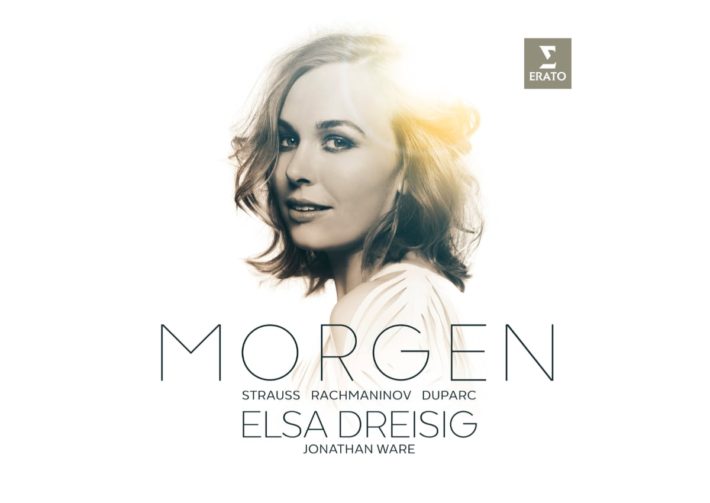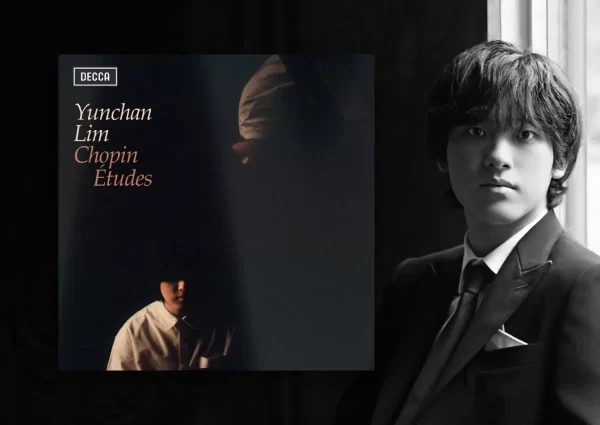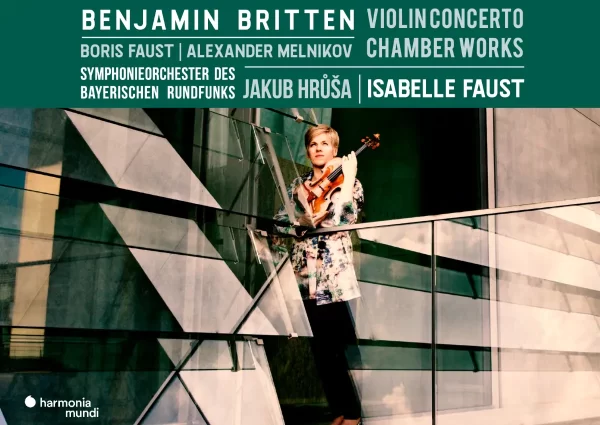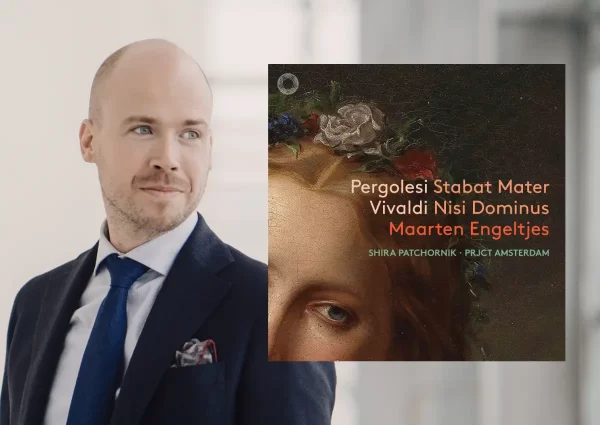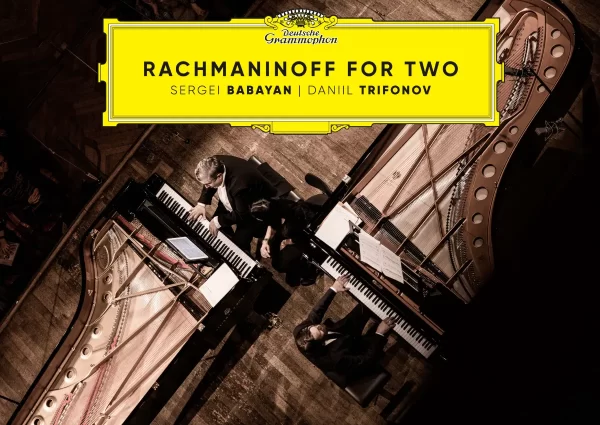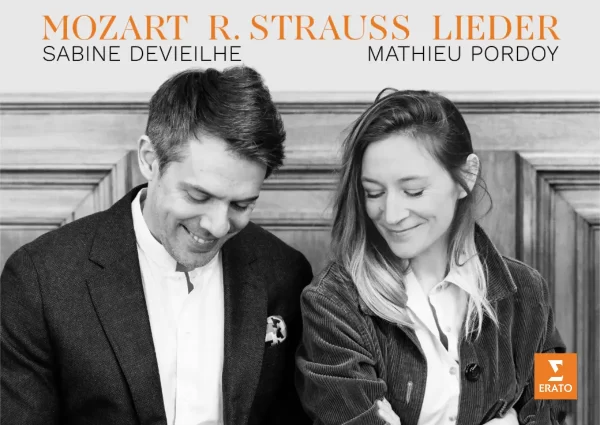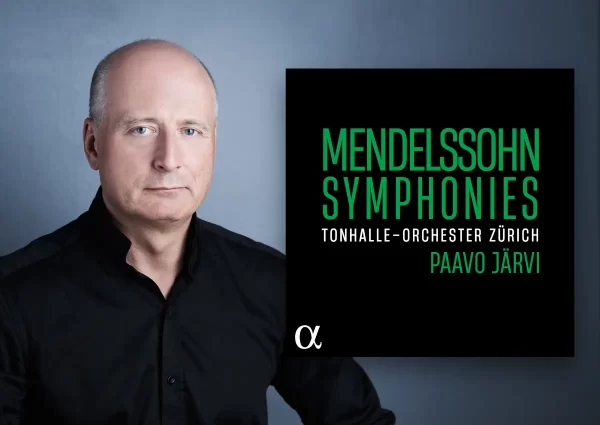Elsa Dreisig’s new recording proves to be an enthralling and moving follow-up to her well-received 2018 debut album “Miroir(s).” That recording, featuring performances of opera arias by Gounod, Massenet, Rossini, Mozart, Puccini, and Strauss, revealed an exceptionally lovely voice wedded to keen emotional intelligence, qualities that are also on full display throughout this new recital.
The program is itself inspiring: with Strauss’s “Four Last Songs” serving as the cornerstones, Dreisig and pianist Jonathan Ware have fashioned a poignant exploration of life’s different seasons. The program begins with Duparc’s “L’Invitation au voyage,” and Dreisig’s fulsome tone and sensual text projection immediately engross the listener, fully depicting the soulful longing of Baudelaire’s poem. Strauss’s “Frühling,” the first of the Four Last Songs, follows, and Dreisig adopts a richer, velvety vocal color. All four songs profit from the exceptional sensitivity of singer and pianist. Yet, these songs proved to be the one small drawback in the album, because I found it impossible to stop wanting to hear the orchestral accompaniment. This is in no way a reflection of Ware’s playing; his performance is, in fact, the most convincing version I know. Nevertheless, the piano is no match for Strauss’s masterly orchestration, and one hopes that Dreisig will one day record these songs in their orchestral guise.
Rachmaninov’s Opus 38 songs are a highlight. Written in 1916, they are the last songs he wrote; a year later he fled to the West as his beloved Russia fell to the Bolsheviks. Unfortunately, his compositional output was greatly diminished by the almost constant touring he undertook during his exile.
Each song is a miniature masterpiece, Rachmaninov alive to every emotional nuance of the texts, with rhapsodic and breath-taking piano accompaniments. Dreisig and Ware fully immerse themselves in Rachmaninov’s sound world. Listen to the playful banter between singer and piano in the fourth song, “The Rat-Catcher” (track 7); I found it impossible not to smile each time it played. Their performance of “To Her” (track 15) is more profound. There is a desperate longing in Herman Hesse’s words and Rachmaninov ratchets up the tension each time the singer cries out “Dear one, where are you?”. Listen to the masterful pacing of Dreisig and Ware, ensuring that the desperation continually grows until it finally explodes in the final overwhelming cry (1’52”).
Related Classical Music Reviews
- Review: “Soirée” – Magdalena Kožená and Friends
- Review: “Lieder” Renée Fleming, Soprano
- Review: “Reason in Madness” – Carolyn Sampson, Soprano
The Duparc songs feature consistently beautiful vocal production. What sets these performances apart is the audible care that singer and pianist have expended on fully characterizing each song. Again, Dreisig’s French is exemplary, and her timbre remains even and warm throughout the large vocal range. Ware clearly relishes Duparc’s piano writing, which utilizes the chromatic and sensual harmonies of his teacher, César Franck. Both musicians offer interpretations that are engaging and charismatic – they have clearly spent time with each piece, honing their ideas into nuanced and thought-provoking performances. “La vie antérieure” (track 19) is particularly striking; Dreisig again changing her color to fully paint the text’s resigned sadness. After the final sentence (“The secret grief which made me languish”), I had to stop the player so I could sit and experience what I was thinking and feeling. Is that not the kind of experience we hope for in the music we listen to?
The final song, Strauss’s “Morgen”, is breathtakingly gorgeous. Daringly slow (the performance is almost a minute slower than Magdalena Kožená’s recent Pentatone album. “Soirée”, review here). Dreisig and Ware create a suspended ecstasy as the protagonist sings of love. It is the perfect way to end this superb recital.
Erato’s sound is warm and spacious, the piano and voice perfectly balanced. The liner notes feature brief statements by both Dreisig and Ware that described how they developed the program, but no notes are provided about the music itself. Full texts and translations are included.
Dreisig is an extraordinary artist and I eagerly look forward to listening to her work in the coming years. Strongly recommended.

“Morgan” – Songs by Strauss, Rachmaninov, Duparc
Elsa Dreisig – Soprano
Jonathan Ware – Piano
Warner Classics / Erato, CD 9029531948
Read more classical music reviews or visit The Classic Review Amazon store
Follow Us and Comment:
Get our periodic classical music newsletter with our recent reviews, news and beginners guides.
We respect your privacy.

